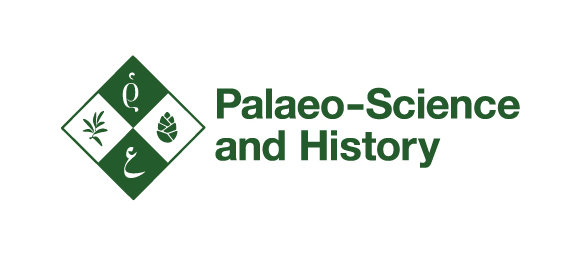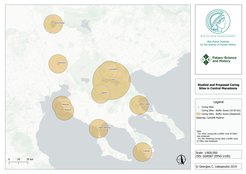
Palaeo-Science and History (PS&H)
Independent Max Planck Research Group, 2018-2023
The “Palaeo-Science and History” (PS&H) Independent Max Planck Research Group (formerly "Byzantine Resilience" (ByzRes)) explores the ways in which history as a humanistic discipline converges with the environmental sciences that focus on the past (and thus can be described as “palaeo-science”). Based on the long-term involvement of the team members in different cross-disciplinary projects and in particular in Princeton University’s Climate Change and History Research Initiative, we want to further develop best practices for the interaction between history and the natural sciences. We work on creating a model of research collaboration and integration of data that future historical-scientific teams could apply in their own work. While methodological issues are at the centre of our research, they are less important for their own sake alone than for their crucial role in understanding the limits and contradictions of convergence – or consilience – between the humanistic and natural scientific approaches to the study of the past.

In this way, PS&H also contributes to the broadening of the source base of historical studies. Through high-resolution pollen, sediment, isotopic and geochemical analyses on various natural archives, focused on the historical times, we provide new evidence on phenomena and processes historians hardly imagined they could know anything about – and we analyse the ways in which this evidence can be incorporated in the historical narrative. Our efforts concentrate also on creating a common language and finding the most efficient strategies for sharing knowledge, thus overriding the traditional divides between natural scientific and humanistic disciplines. By pursuing this interdisciplinary approach, we want to deepen our appreciation of how human societies – at all levels, political, economic and cultural – interact with their landscapes and changing environmental conditions.
In our everyday work, we focus on case studies coming from Europe and the Mediterranean. Our initial priorities will be long-term, in-depth studies of two Greek regions, the Peloponnese and Macedonia, during the centuries when they were dominated by two closely related imperial systems, the Eastern Roman (Byzantine) and Ottoman. The Eastern Roman Empire was one of the longest-lasting pre-modern socio-political systems, and certainly one of the most complex. Despite the collapse that occurred in the West in the fifth century CE, the eastern part of the Roman Empire existed for another thousand years, becoming the Roman Empire of the Middle Ages, today known as Byzantium. Moreover, when the Byzantine capital fell to the Ottomans in 1453 CE, many of Byzantium’s social-ecological structures were maintained, or even further developed in response to the highly diverse and vulnerable environments of the Mediterranean. This unique continuity in the face of natural challenges, such as unstable precipitation patterns, extreme winters, or generations-long dry periods, makes the Eastern Mediterranean one of the best laboratories for the study of human interaction with the environment and changing climates. Our work on these case studies involves coring in lakes and peat bogs in order to obtain palaeoenvironmental archives, as well as developing a GIS database on the economy, agriculture, demography and trade, derived from documents originating in Byzantine, Ottoman and Venetian archives (our sources include taxation cadastres, land surveys, population censuses, plus other types of medieval-early modern documents and historiography). During the second phase, our case studies will focus on western and northern Turkey, Sicily and Greater Poland, where we will apply similar methods. Thus, we will create a larger portfolio of comparanda, that will allow for a further elaboration of our methodology and for more insight into our historical-environmental research questions.
The overriding principle upon which our research strategy is based is the constant focus on achieving mutual understanding between and learning from the representatives of different humanistic and natural scientific disciplines within a single team. As we try to concentrate our efforts and methods on the same research problems and the same social-ecological phenomena, as well as the same area and the same time period, we seek together the ways to create connections between our different datasets and modes of thinking.


